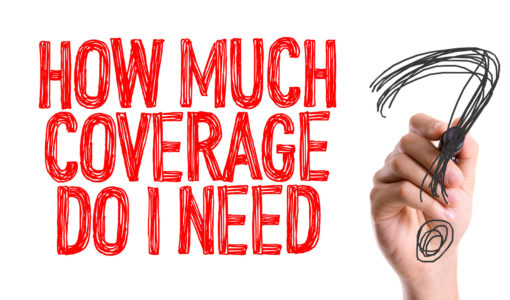Can a cancer patient buy life insurance?
FREE Life Insurance Comparison
Secured with SHA-256 Encryption
Compare quotes from the top life insurance companies and save!
- There has to a period of five to 10 years of remission before most life insurance companies offer a standard rate
- Get some help from an experienced life insurance broker who understands and has connections with impaired risk companies
- Be persistent and don’t give up
It is true that cancer can be a serious and life-changing event for many people, and if you have cancer it can mean a change in your insurability as far as purchasing life insurance.
When it comes to underwriting a cancer patient for life insurance, there are lots of variables and methods of looking at just how the cancer is affecting the patient, and how the life insurance company looks at the disease.
There is much to learn about how cancer works and how life insurance can be purchased so an insured can be covered if they have cancer.
Learn more about cancer patients obtaining life insurance below and don’t miss out on our free quote tool above!
–The Epidemic of Cancer

Cancer is described as a group of diseases that show a trend of uncontrolled growth of abnormal cells. These cells will grow wildly with no particular sense of order, ultimately crowding out and taking over areas where normal cells function.
The result is the disruption and death of normal cells, and eventually, the individual who has contracted cancer will die.
Cancer is on the increase, not only in America but worldwide.
One obvious reason is that people are living to older ages, allowing a wider age range for the disease to occur.
Other factors in the steady rise of cancer include the heavy emphasis on diets of processed foods, processed and red meats, over indulgence in sugar consumption, tobacco and alcohol use, and sun tanning and tanning beds.
Over half of us will hear the words, “you have cancer” during our lifetimes. This makes the disease a major fact of life that will have to be dealt with at some time during a person’s life in a major way.
The purchase of life insurance plays into the scenario when a person who realizes the problem of possibly being turned down for insurance if a person contracts cancer, of purchasing coverage early in life.
–How Cancer Works
Cancer causes an uncontrolled growth of abnormal cells which divide and multiply much faster than normal.
For some reason, the natural pattern of healthy cell growth, dividing and the death of old cells goes haywire, causing the growth of tumors and dysfunction of normal bodily processes.
The treatment of cancer can vary by individual, so there is no “one cure remedy” as each instance can require different treatment approaches altogether.
The basic treatments for cancer fall into the categories of surgery, chemotherapy, and radiation. The treatment can consist of one, two, or all three of these procedures.
–Life Insurance and Cancer
Cancer is a very unpredictable disease, both in its inception and ultimate disposition in the human body.
Life insurance is a long-term instrument and is designed to pay a sum of money or an income at the time of a person’s death.
For the most part, if an individual is diagnosed with cancer of any kind, the prospect of ever obtaining life insurance coverage is not a good probability.
Life Insurance Strategies For People Who Have Cancer

Depending upon the type of cancer and the severity of its presence, people who have cancer or have had it can face some challenges in the procurement of life insurance.
If a person has had cancer and it has gone into remission, a period of five to 10 years will have to pass before most life insurance companies offer a standard rate.
Life insurance companies follow guidelines set by the National Cancer Institute statistics on cancer, its inception, and how it affects human beings.
A person who is undergoing cancer treatment is normally not going to be offered life insurance under regular underwriting conditions, but there are plans and strategies that can be employed under such circumstances.
–Purchase A Graded or Modified Benefit Life Insurance Policy
Graded life insurance policies have a graduated death benefit.
For example, a policy might have no death benefit for the first two to three years of policy, although if death occurs during that time, the full amount of premiums are refunded with interest of 10 to 20 percent.
After that period, a death benefit is available for the full amount, if the insured is still living at that time.
Graded or modified benefit policies are also called “final expense” or “burial policies” and are targeted to be marketed to the senior market, but with many companies, the age ranges can be from age 40 to age 85.
There are many companies who offer such coverage, so it is possible to search for the best rates. Coverage amounts range from $2,500 to $50,000 of life insurance coverage.
–Purchase Group Term Life Insurance From Your Employer

If you have the availability of group term life insurance through your employer’s benefit plan, by all means, you should purchase all that you can. Group term life
Group term life does not require any underwriting as far as health background.
It is not always available, but if it is you should take advantage of it. Some plans allow you to convert the group term life to a whole life policy if you leave that employment situation.
If you are not covered by such a plan, there is nothing wrong with seeking an employment situation where group term life is available.
Of course, there are more complicated circumstances such as finding a job that fits your qualifications which have benefits including such coverage.
–Life Insurance Available Through Associations and Organizations
If you belong to an association or an organization that offers a life insurance benefit, you can take advantage of that availability, just as you can with a group term life.
There is no underwriting, and you will be able to obtain coverage with not problem. If you do not belong to such an organization or association, find out how you can join and become a member.
There may be a waiting period before a benefit becomes available after joining, but it might be worth looking into.
Usually, professional associations will offer life insurance, coverage through the military, specialty associations, and unions offer some group life insurance benefit.
Summing Up

Cancer and all of its ramifications do present a significant challenge to folks wishing to purchase life insurance while they are being treated for the disease.
However, there are some remedies, and they should all be explored if a person’s situation fits.
–After Recovery From Cancer
Most life insurance companies will consider issuing a policy after a recovery period of five to 10 years from cancer where there has been a remission and no recurrence of cancer of any kind during that period.
Keep in mind that this is a general rule of thumb, and the process can vary from company to company and on an individual basis as well.
–Best Strategy — Find a Broker
When you reach the point that you have recovered and are ready to purchase life insurance, you would be best served to work with an experienced life insurance broker who is well versed with companies who specialize in situations that revolve around impaired risks and cancer underwriting.
This way, several requests can be submitted to different companies so your individual case can be thoroughly evaluated.
You should get all of your medical records together from A to Z, as life insurance underwriters will want to see as much as possible of your health background.
Be prepared to get a thorough physical examination from an insurance company appointed doctor, as well as giving current blood and urine samples.
Your objective is to get some firm quotes from as many good and reputable life insurance companies as possible.
–What Type of Policy Should You Buy?

If possible, consider the purchase of a permanent policy. While it will cost more that term life will, it will last longer.
Term coverage will expire at a certain date, such as in 10 or 20 years, while a permanent plan will be there when you die.
A permanent life plan such as whole life, universal live, or indexed universal life will also have a cash value which can be borrowed as time goes on and the policy matures.
Each person’s situation is different, but it is always better to be sure that your life insurance will be there when you need it, and if you outlive your term insurance, you could wind up with no life insurance at all.
If you can’t afford as much permanent life insurance as you need, you can purchase a combination of the two types of coverage. Some term policies also allow a conversion to permanent plans.
Don’t miss out on our free comparison tool below! Just enter your zip code below and start comparing rates today!
Start Saving on Life Insurance!
Enter your zip code below to compare rates from the top companies in your area
Secured with SHA-256 Encryption



